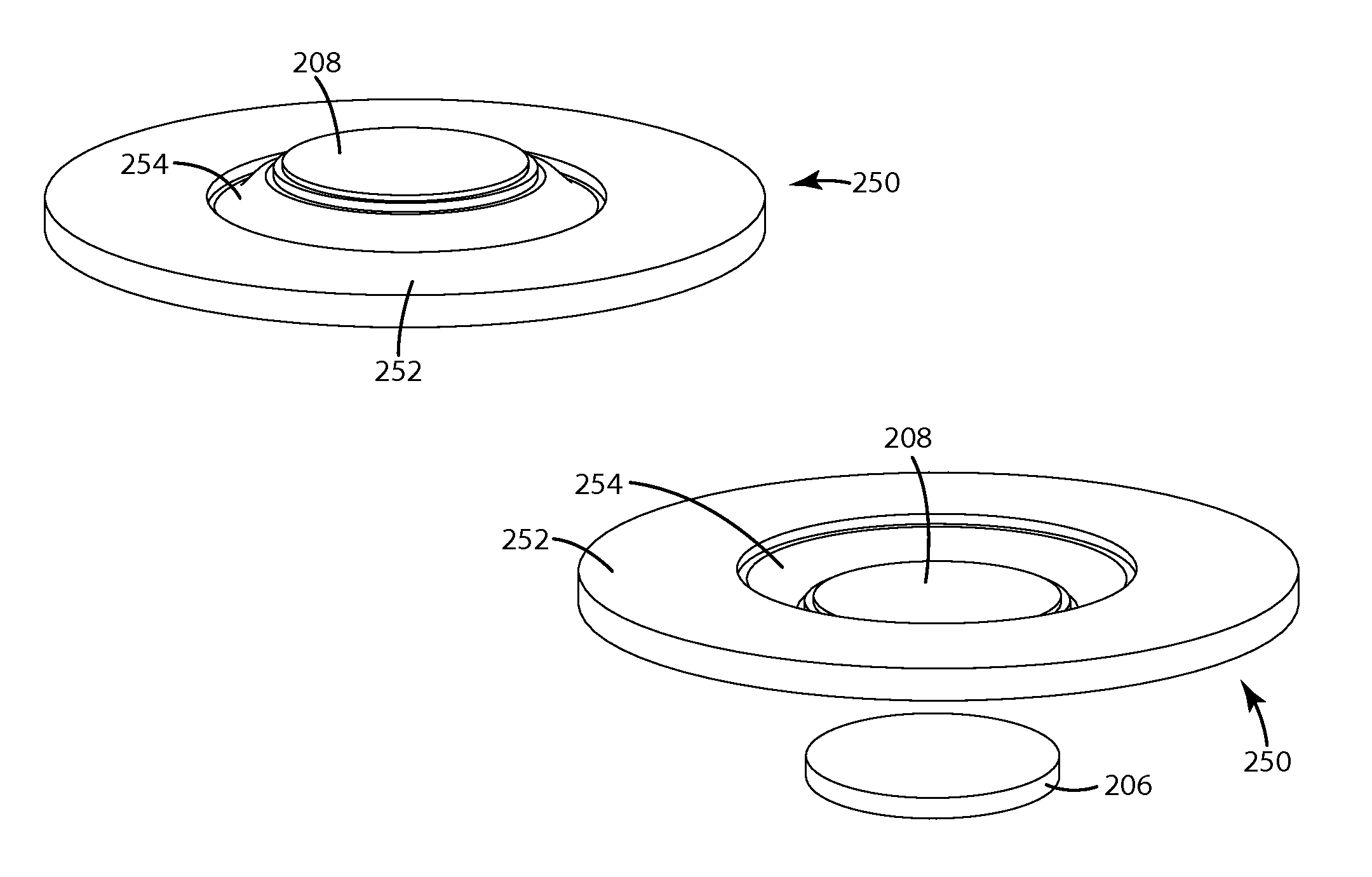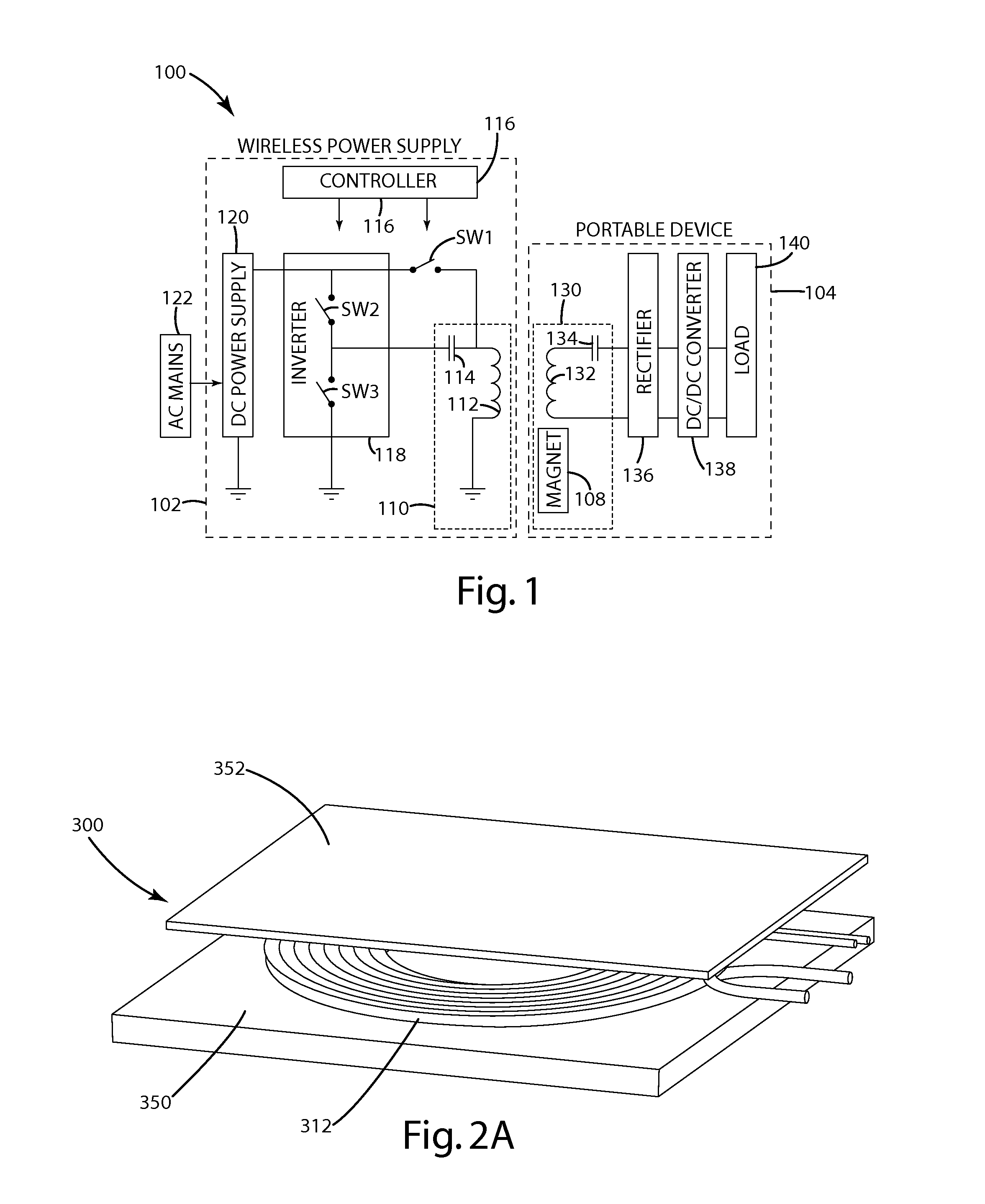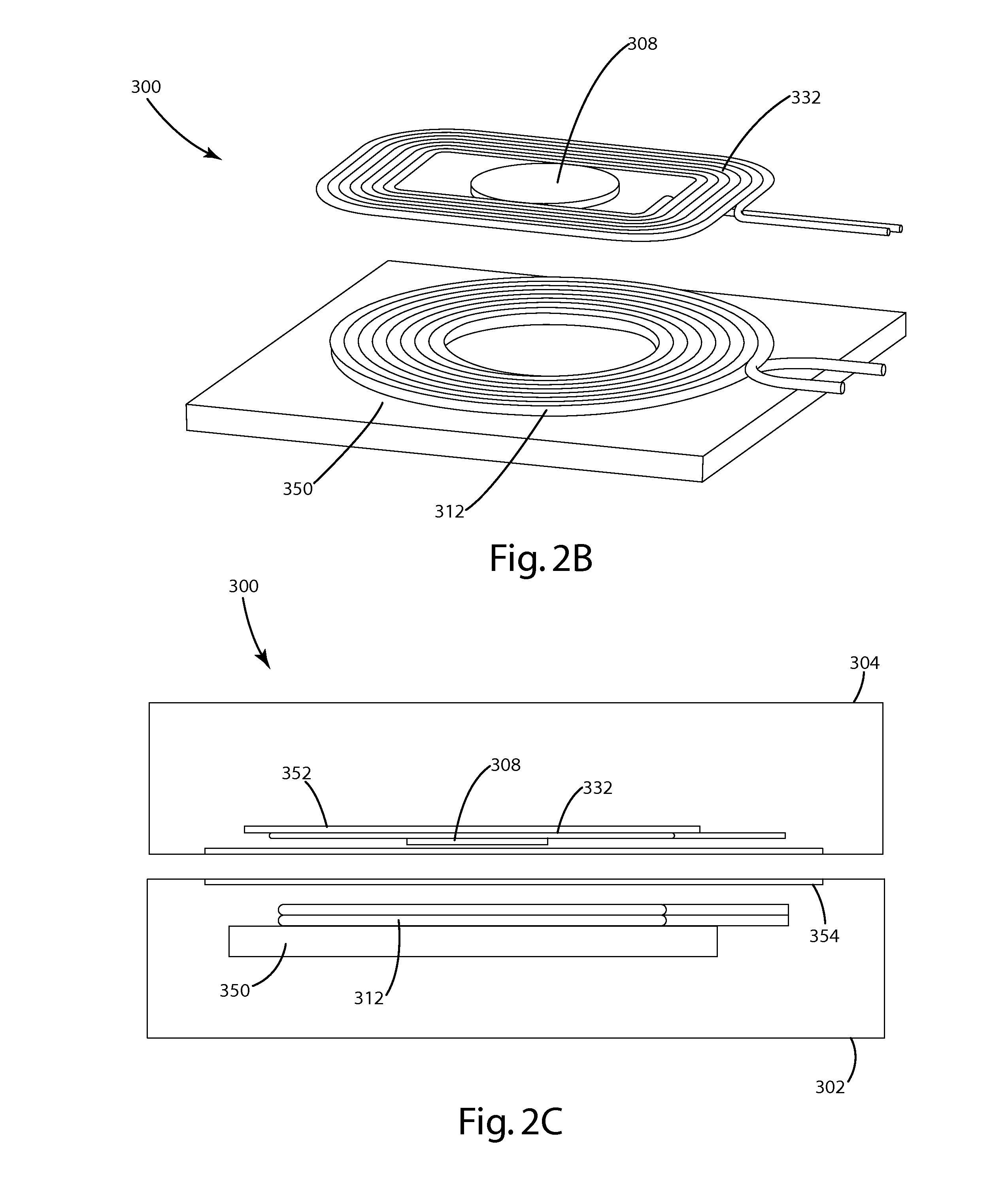Wireless power system and method with improved alignment
a wireless power supply and portable device technology, applied in the direction of magnets, magnets, transportation and packaging, etc., can solve the problems of difficult to achieve consistent alignment between primary and secondary coils, components are prone to mechanical failure, and multiple coil arrays are expensive to implement. achieve the effect of improving power transfer efficiency, cost-effectiveness, and simple and effectiv
- Summary
- Abstract
- Description
- Claims
- Application Information
AI Technical Summary
Benefits of technology
Problems solved by technology
Method used
Image
Examples
second embodiment
[0059]Referring now to FIG. 3, the physical configuration of the DC coil drive system 400 is shown. The DC coil drive system 400 includes components similar to the embodiments described with regard to FIGS. 2a-c. The primary coil 312 in this configuration is shown with an associated primary magnet 306, which may be located near the center of the primary coil 312. The primary magnet 306 may be similar to the primary magnet described above. The primary coil 312 may act as an inductive power transfer coil when driven with an AC current, and may act as an electromagnet that interacts with the secondary coil 332 when driven with a DC current. The secondary coil 332 in this configuration is shown without an associated secondary magnet, and may be used to generate a DC magnetic field for magnetic attraction.
[0060]Also shown in FIG. 3 are possible coil configurations for primary coil 312 and secondary coil 332. The inductive power supply may include a primary inductor or inductive element c...
third embodiment
[0061]Turning to the DC coil drive system 500 illustrated in FIG. 5, primary coil 312 and secondary coil 332 are both shown without associated magnets. The DC coil drive system 500 may include components similar to the embodiments described with regard to FIGS. 2a-c. Both the primary coil 312 and the secondary coil 332 in this configuration may generate a DC magnetic field in response to a DC current. When the two fields are in the same direction, an attractive force may help to urge alignment of the two coils. After an alignment operation occurs, an AC current may be applied to the primary coil 312 to transfer power inductively to the secondary coil 332.
[0062]As shown in FIG. 5, the third embodiment of the DC coil drive system may use primary inductor 12 and secondary inductor 32 to create an attractive force for alignment of the inductive power supply and electronic portable device. Primary inductor 12 may be similar to each of the primary inductors 112, 312, 412 described above, ...
fourth embodiment
[0070]The DC coil drive system of FIG. 8 illustrates a fourth embodiment that includes an inductive power supply with a primary inductor array 613. The primary inductor array 613 may include multiple primary inductors 612 that may be either individually energized or energized in groups to transfer power to an electronic portable device with a secondary inductor 632. The primary inductors 612 and secondary inductor 632 may be respectively similar to each of the primary inductors 12, 112, 312 and secondary inductors 32, 132, 332 described with regard to other embodiments. In alternative embodiments, primary inductors 612 may have associated primary magnets similar to the primary magnets 6, 106, 306 described in other embodiments. In yet further alternative embodiments, secondary inductor 632 may have an associated secondary magnet similar to the secondary magnets 8, 108, 308 described in other embodiments.
[0071]In the fourth embodiment, the primary inductor array 613 may be setup so t...
PUM
| Property | Measurement | Unit |
|---|---|---|
| current | aaaaa | aaaaa |
| alternating current | aaaaa | aaaaa |
| power | aaaaa | aaaaa |
Abstract
Description
Claims
Application Information
 Login to View More
Login to View More - R&D
- Intellectual Property
- Life Sciences
- Materials
- Tech Scout
- Unparalleled Data Quality
- Higher Quality Content
- 60% Fewer Hallucinations
Browse by: Latest US Patents, China's latest patents, Technical Efficacy Thesaurus, Application Domain, Technology Topic, Popular Technical Reports.
© 2025 PatSnap. All rights reserved.Legal|Privacy policy|Modern Slavery Act Transparency Statement|Sitemap|About US| Contact US: help@patsnap.com



